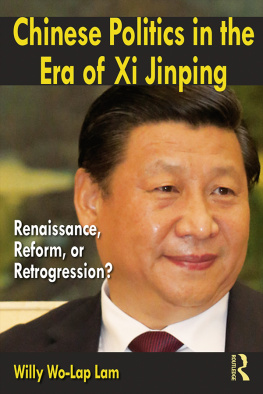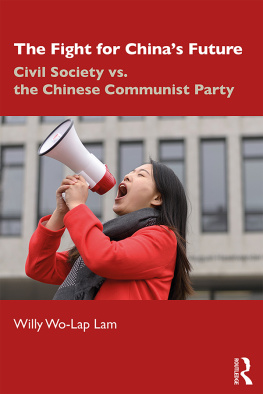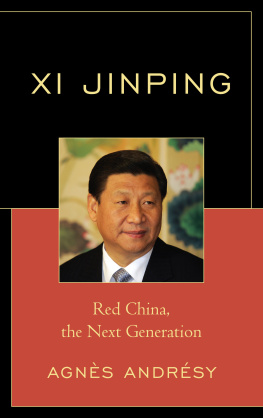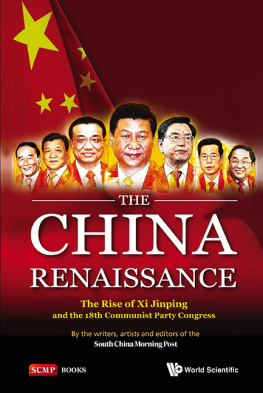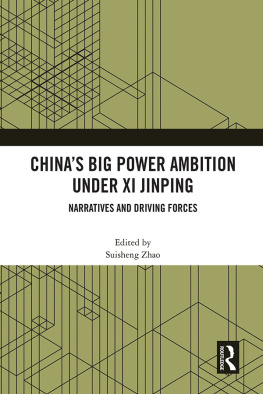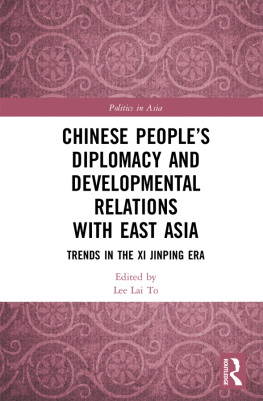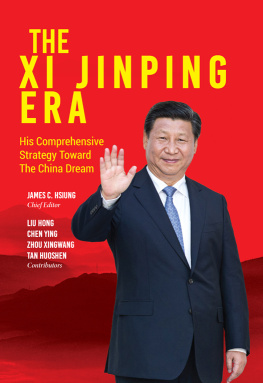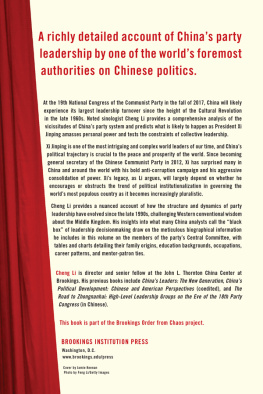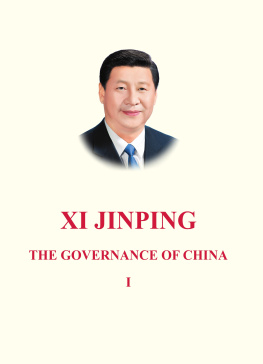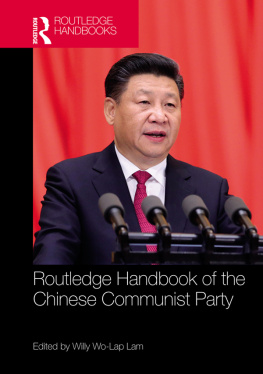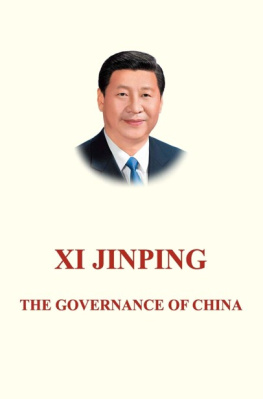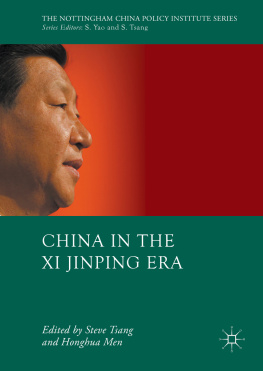Willy Wo-Lap Lam - Chinese Politics in the Era of Xi Jinping: Renaissance, Reform, or Retrogression?
Here you can read online Willy Wo-Lap Lam - Chinese Politics in the Era of Xi Jinping: Renaissance, Reform, or Retrogression? full text of the book (entire story) in english for free. Download pdf and epub, get meaning, cover and reviews about this ebook. year: 2015, publisher: Routledge, genre: Politics. Description of the work, (preface) as well as reviews are available. Best literature library LitArk.com created for fans of good reading and offers a wide selection of genres:
Romance novel
Science fiction
Adventure
Detective
Science
History
Home and family
Prose
Art
Politics
Computer
Non-fiction
Religion
Business
Children
Humor
Choose a favorite category and find really read worthwhile books. Enjoy immersion in the world of imagination, feel the emotions of the characters or learn something new for yourself, make an fascinating discovery.
- Book:Chinese Politics in the Era of Xi Jinping: Renaissance, Reform, or Retrogression?
- Author:
- Publisher:Routledge
- Genre:
- Year:2015
- Rating:4 / 5
- Favourites:Add to favourites
- Your mark:
- 80
- 1
- 2
- 3
- 4
- 5
Chinese Politics in the Era of Xi Jinping: Renaissance, Reform, or Retrogression?: summary, description and annotation
We offer to read an annotation, description, summary or preface (depends on what the author of the book "Chinese Politics in the Era of Xi Jinping: Renaissance, Reform, or Retrogression?" wrote himself). If you haven't found the necessary information about the book — write in the comments, we will try to find it.
Willy Wo-Lap Lam: author's other books
Who wrote Chinese Politics in the Era of Xi Jinping: Renaissance, Reform, or Retrogression?? Find out the surname, the name of the author of the book and a list of all author's works by series.
Chinese Politics in the Era of Xi Jinping: Renaissance, Reform, or Retrogression? — read online for free the complete book (whole text) full work
Below is the text of the book, divided by pages. System saving the place of the last page read, allows you to conveniently read the book "Chinese Politics in the Era of Xi Jinping: Renaissance, Reform, or Retrogression?" online for free, without having to search again every time where you left off. Put a bookmark, and you can go to the page where you finished reading at any time.
Font size:
Interval:
Bookmark:
by Routledge
711 Third Avenue, New York, NY 10017
2 Park Square, Milton Park, Abingdon, Oxon, OX14 4RN
951.0612dc232014028353
ISBN: 978-0-7656-4209-7 (pbk)
ISBN: 978-1-315-71936-8 (ebk)
Font size:
Interval:
Bookmark:
Similar books «Chinese Politics in the Era of Xi Jinping: Renaissance, Reform, or Retrogression?»
Look at similar books to Chinese Politics in the Era of Xi Jinping: Renaissance, Reform, or Retrogression?. We have selected literature similar in name and meaning in the hope of providing readers with more options to find new, interesting, not yet read works.
Discussion, reviews of the book Chinese Politics in the Era of Xi Jinping: Renaissance, Reform, or Retrogression? and just readers' own opinions. Leave your comments, write what you think about the work, its meaning or the main characters. Specify what exactly you liked and what you didn't like, and why you think so.

